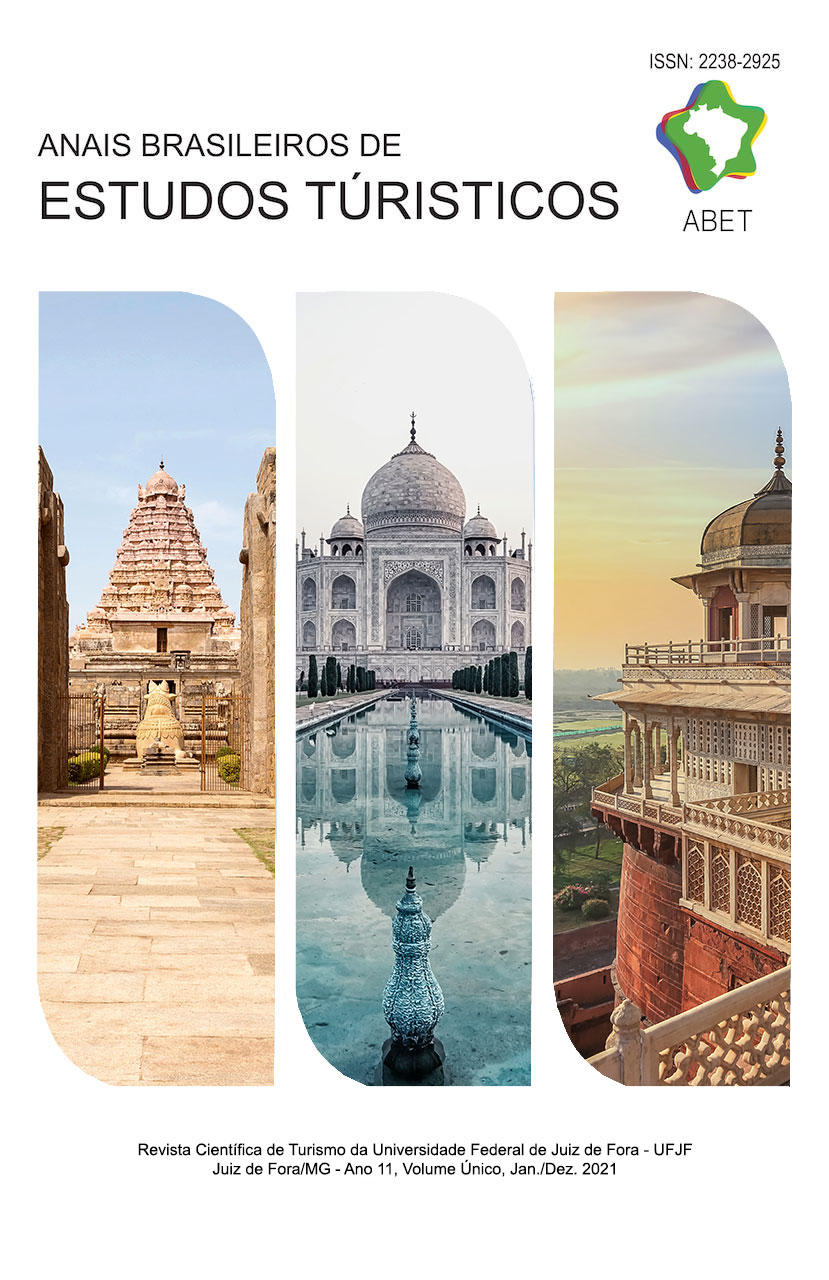Percepción del Overturism en las Islas: la Muestra de Bozcaada y Gökçeada
DOI:
https://doi.org/10.5281/zenodo.5771042Palabras clave:
Turismo Sostenible, Comportamiento de los Residentes, Destino TurísticoResumen
Este estudio está dirigido a evaluar los efectos del "overturism" en las dos islas turísticas en Çanakkale, Bozcaada y Gökçeada, a partir de la pesrpectiva de las personas locales. El overturism enfatiza que un número excesivo de turistas en un destino en particular puede tener efectos negativos en la sociedad. En este estudio, el fenómeno del overturism se ha discutido sobre la base de la capacidad de carga social y el Modelo de Irritabbilidad de Doxey. En línea con este propósito, la percepción de las personas locales sobre los efectos del turismo, los problemas causados por los turistas y sus actitudes hacia los turistas fueron evaluados con 260 datos utilizando el método survey. Los datos se analizaron por la actuación de T-Test y análisis de regresión en el programa de paquete estadístico. Según los hallazgos del estudio, aunque exista una percepción positiva hacia el turismo en las islas, también existen problemas causados por el turismo. Se puede decir que Bozcaada está experimentando un problema de overturism por ser una isla pequeña en comparación a Gökçeada. Se puede decir que Gökçeada está en la primera etapa, en el nivel de satisfacción, aunque parezca que sea Bozcaada la que esté en el nivel de satisfacción del modelo de Doxey. Con este estudio, se ha propuesto teóricamente la capacidad de carga social de las dos islas en Çanakkale, y se ha discutido la percepción de las personas locales sobre el overturism en función de la teoría de Doxey. Por tanto, en la práctica, la planificación del turismo sostenible en las islas se puede hacer tomando en consideración estos hallazgos.
Descargas
Descargas
Publicado
Cómo citar
Número
Sección
Licencia
Derechos de autor 2021 Anais Brasileiros de Estudos Turísticos - ABET

Esta obra está bajo una licencia internacional Creative Commons Atribución 4.0.
This journal provides immediate open access to its content, following the principle that providing free scientific knowledge to the public provides greater democratization of world knowledge.
Authors must agree to the following terms relating to copyrights:
(a) Authors keep all copyright and grant the to the journal the right of first publication, with the work simultaneously licensed under the Creative Commons Attribution License that allowing job sharing with recognition of authorship of the work and initial publication in this journal.
(b) Authors are allowed to assume additional contracts separately, for non-exclusive distribution of the version of the work published in this journal (e.g. publish in institutional repository or book chapter), with recognition of authorship and initial publication in this magazine.
(c) Authors are allowed and are encouraged to publish and distribute their work online (e.g. in institutional repositories or on your personal page) since they do not do this before or during the editorial process, as this can generate productive interchange, as well as increase the impact and citation of work aired. (See Effect of Free Access).















